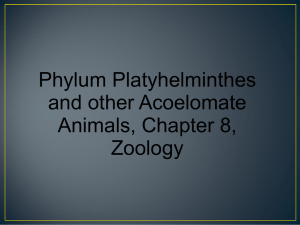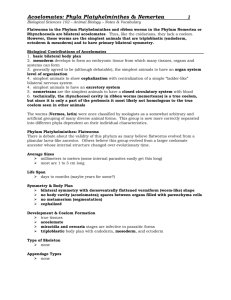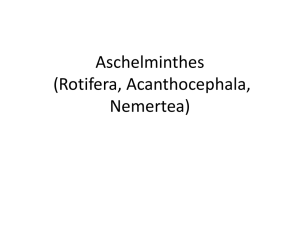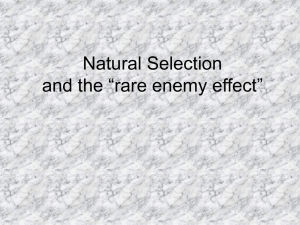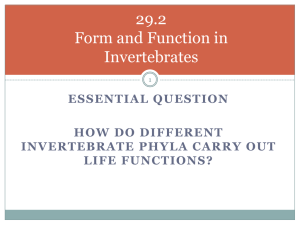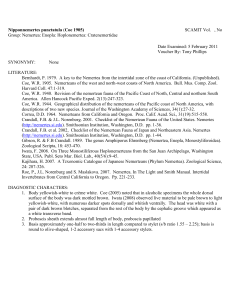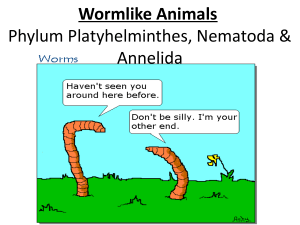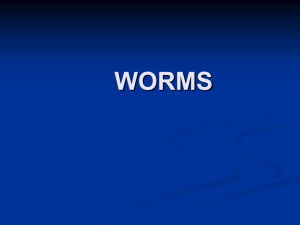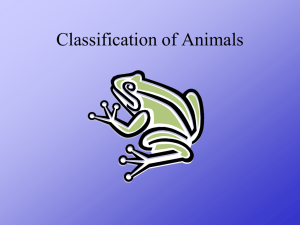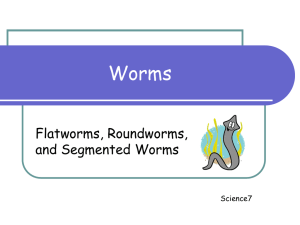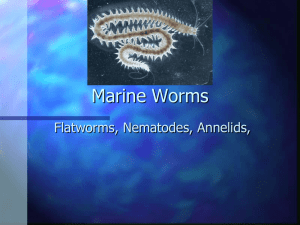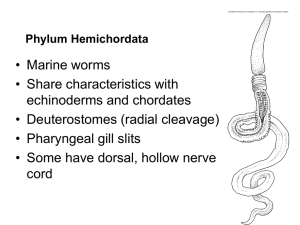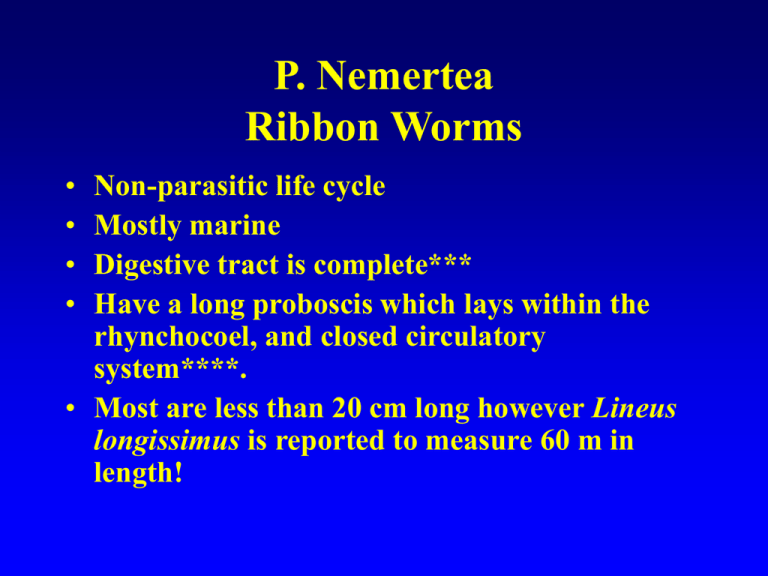
P. Nemertea
Ribbon Worms
•
•
•
•
Non-parasitic life cycle
Mostly marine
Digestive tract is complete***
Have a long proboscis which lays within the
rhynchocoel, and closed circulatory
system****.
• Most are less than 20 cm long however Lineus
longissimus is reported to measure 60 m in
length!
Ph. Nemertea (Ribbon Worms)
Nemerteans are
voracious predators
with well-developed
chemical senses
scyphozoan
medusa
fish eggs
FRESHWATER NEMERTEA: THE PROBOSCIS WORMS,
PROSTOMA SP. COLLECTED FROM WISCONSIN.
PROSTOMA SP. NOTE THE SENSORY GROOVE AND 3 PAIRS
OF EYES
P: Mesozoa
• Members of the phylum are minute,
ciliated animals only 0.5-7 mm in length.
• Highly specialized parasites or symbionts
living in marine invertebrates.
• Most are composed of only 20-30 cells
arranged in two layers.
P: Mesozoa
SEX
ASEX
P: Mesozoa
• The two layers are not homologous to germ
layers of other metazoans.
• It is still unclear as to whether they are
degenerate platyhelminthes (flatworms) or
truly-primitive, basal metazonas.
• Mesozoa were once thought to be evolutionary
intermediate forms between Protozoanas and
Metazoans, but now they are thought to be
degenerate or simplified metazoa.
The Big Picture
• Flatworms are a divers group of bilaterally
symmetrical invertebrates with a head region.
• A large proportion of these are parasitic and
having complex life cycles.
• The diversity of life cycle strategies must
overcome the small probability of finding and
infecting a host were the parasite can grow and
reproduce.

